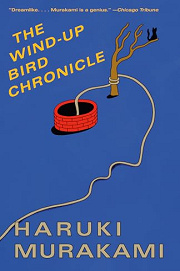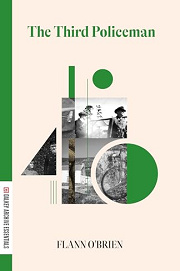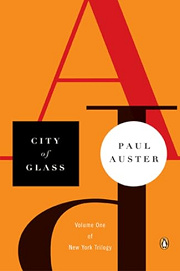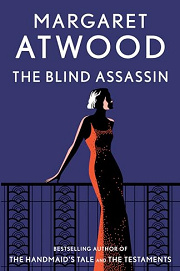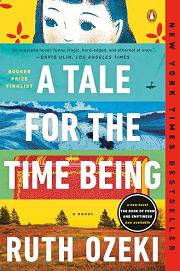Share your thoughts in a quick Shelf Talk!
The Wind-Up Bird Chronicle by Haruki Murakami
A missing wife, a dry well, and a quiet man pulled into a labyrinth of dreams, memories, and strange encounters. The Wind-Up Bird Chronicle blends the surreal with the intimate, drawing you through hidden alleys of the subconscious where fate hums like a clockwork bird in the dark.
Have you read this book? Share what you liked (or didn’t), and we’ll use your answers to recommend your next favorite read!
Love The Wind-Up Bird Chronicle but not sure what to read next?
These picks are popular with readers who enjoyed this book. Complete a quick Shelf Talk to get recommendations made just for you! Warning: possible spoilers for The Wind-Up Bird Chronicle below.
In The Wind-Up Bird Chronicle, did you enjoy ...
... the dreamlike slide from mundane routines into a bizarre underworld (like Toru’s well descent and those cryptic phone calls)?
The Third Policeman by Flann O'Brien
If the way Toru Okada’s search for Kumiko keeps slipping into the uncanny—down the dry well, into hotel rooms charged with strange currents, through Malta and Creta Kano’s occult guidance—hooked you, you’ll love the off-kilter plunge of The Third Policeman. A nameless narrator wanders into a rural police station where logic buckles (bicycles may be part-human; physics is folklore), much like how Noboru Wataya’s shadowy influence warps reality in Murakami’s world. It’s the same deadpan, surreal drift from ordinary errands to a subterranean realm where meaning is unstable and haunting.
... a missing-person investigation that becomes a metaphysical maze of identity?
City of Glass by Paul Auster
Drawn to Toru’s understated sleuthing—taking phone calls meant for someone else, tailing threads that lead from neighborhood cats to Noboru Wataya’s power plays? In City of Glass, writer-turned-detective Daniel Quinn answers a misdialed call and tumbles into an investigation that unravels his sense of self, much as Toru’s hunt for Kumiko dissolves into questions about who he is beneath the surface calm. The stalking, notebooks, and city wandering echo Toru’s patient legwork, but the case opens onto a deeper void that will feel eerily familiar.
... embedded tales and confessions that refract the present through hidden histories?
The Blind Assassin by Margaret Atwood
If Lieutenant Mamiya’s Manchurian war memoirs and Creta Kano’s confessional episodes enthralled you—those nested accounts that throw Toru’s present into new relief—The Blind Assassin delivers that same layered revelation. Iris Chase’s autobiography folds in newspaper clippings and a pulp sci‑fi tale told by illicit lovers, each strand reinterpreting the others the way Mamiya’s scarred past illuminates the violence coiled around Noboru Wataya. The result is a hypnotic mosaic of memory, secrecy, and the stories we tell to survive.
... a detached, introspective protagonist trapped in an eerie, suffocating situation?
The Woman in the Dunes by Kobo Abe
If you connected with Toru Okada’s calm, inward gaze as he’s drawn deeper into a strange, enclosing world—spending hours at the bottom of a well, letting May Kasahara’s letters and visits alter his course—The Woman in the Dunes channels that same psychological pressure. An entomologist is lured to a village and forced to shovel sand alongside a mysterious woman, his identity slowly reshaped by ritual and confinement. Like Toru’s quiet resolve against Noboru Wataya’s invisible grip, the struggle here is internal, existential, and hauntingly intimate.
... a patient, day‑by‑day accumulation of meaning through diaries, coincidences, and quiet revelations?
A Tale for the Time Being by Ruth Ozeki
If the slow accretion of clues in Toru’s days—cat searches, chance meetings with May Kasahara, war stories that echo forward—was your pace, A Tale for the Time Being invites the same meditative drift. A writer on an island finds a washed‑ashore diary from a Tokyo teen; reading it, she uncovers threads of trauma, Zen practice, and fate that converge across oceans and time, much like how Toru’s seemingly minor errands open into the deeper mystery of Kumiko and Noboru Wataya. It’s a gentle, resonant slow burn with big emotional payoffs.
Unlock your personalized book recommendations! Just take a quick Shelf Talk for The Wind-Up Bird Chronicle by Haruki Murakami. It’s only a few questions and takes less than a minute.
